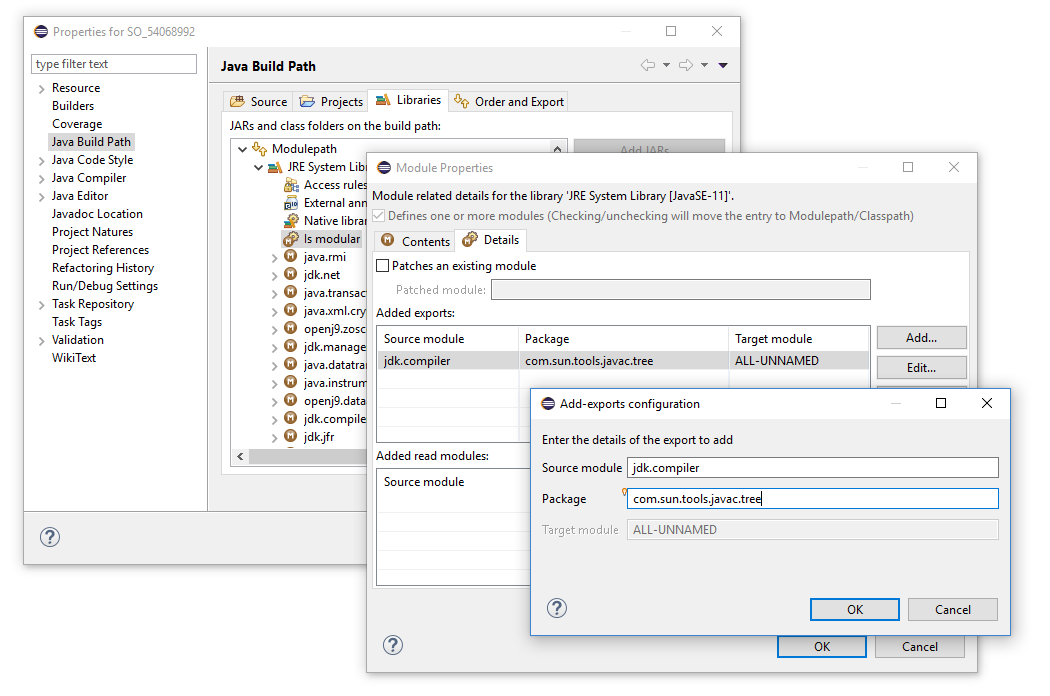Is it possible to tell eclipse to add the following command line option:
--add-exports jdk.compiler/com.sun.tools.javac.tree=ALL-UNNAMED
when compiling.
I think it may also be needed when running tests.
Is it also possible to remove this message:

Note that I tried to add those to the VM options of one of my unit tests but that did not work.


